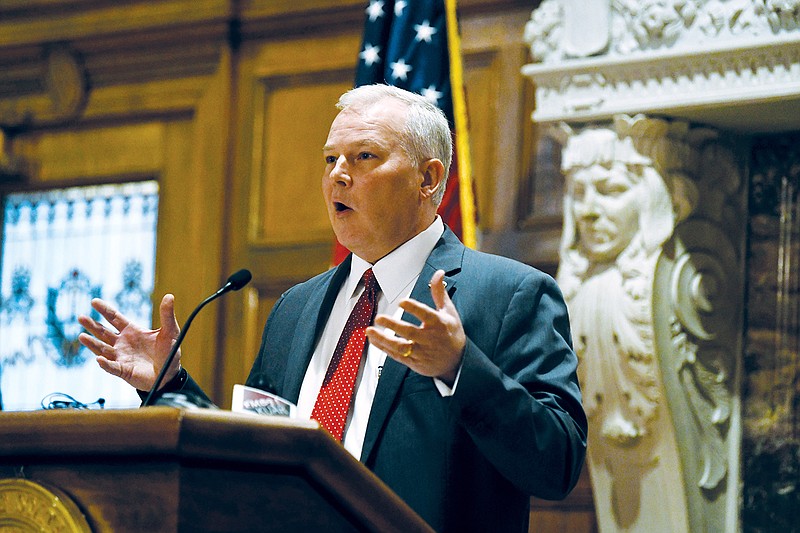Arkansas Attorney General Tim Griffin joined those from 12 other states who signed a letter sent Thursday asking Fortune 100 chief executives to keep racial preferences out of their hiring and promotion policies.
The U.S. Supreme Court on June 29 struck down affirmative action in college admissions, saying race couldn't be a factor in accepting or rejecting student applicants.
Republicans have not only embraced the court's decision, but some see it as a blanket overturning of affirmative action.
The attorneys general said in their letter that "treating people differently because of the color of their skin, even for benign purposes, is unlawful and wrong."
"Companies that engage in racial discrimination should and will face serious legal consequences," the letter said.
Holly Dickson, executive director of the Arkansas chapter of the ACLU, said, "This is definitely overstepping by out-of-control politicians seeking to squelch every civil right and civil liberty we have.
"They should instead endeavor to uphold their oath and respect our rights," Dickson said.
Most of the letter's signers represented Southern states. It was spearheaded by Tennessee Attorney General Jonathan Skrmetti.
U.S. Sen. Tom Cotton, an Arkansas Republican, has said in the past few weeks that the ruling against affirmative action in colleges and universities should extend into executive suites.
While most of the companies that the AGs call out are in the tech industry, Cotton has specifically addressed retailer Target Corp., which released a breakdown of its workers by race and gender that included a pledge to increase its hiring of Black workers by 20%.
Cotton said in a recent letter to the Minneapolis-based retailer that those hiring benchmarks amounted to a racial quota.
So far, Walmart Inc. has avoided drawing the vitriol aimed at other firms. But like Target, Walmart also publishes an annual breakdown by gender and race of its 2.6 million U.S. employees and how many have been promoted to management and executive positions.
In its annual Culture, Diversity, Equity and Inclusion reports, Walmart publicizes its many efforts to support the education and career aspirations of people of color.
Along with the Walmart Foundation, the Bentonville-based retailer established a Center for Racial Equity, which focuses its efforts on finance, health, education and criminal justice.
It also has donated millions of dollars to support programs at historically Black colleges and universities.
"What we've been seeing a lot of since the decision came down is political opponents of diversity, equity and inclusion ... conflating affirmative action with diversity, equity and inclusion more broadly -- because it serves their purposes," David Glasgow, executive director of the Meltzer Center for Diversity, Inclusion and Belonging at New York University's School of Law, told The Associated Press.
"I think there's a lot of quite deliberate attempts to muddy the waters here," Glasgow said.

